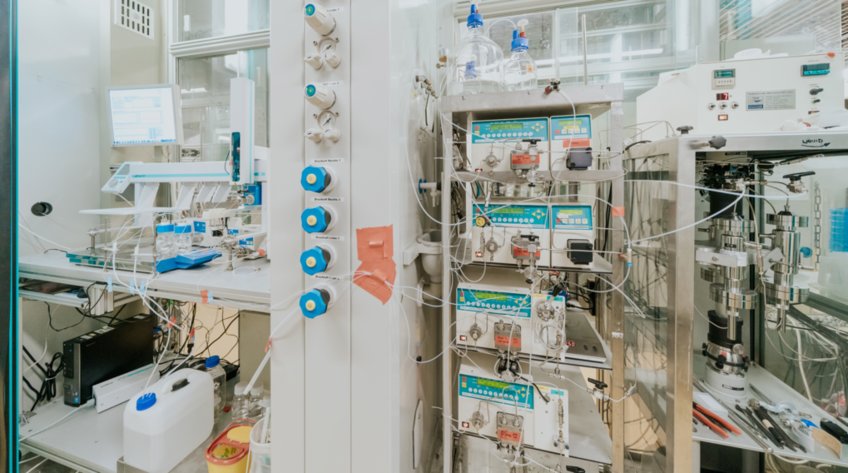
Chromatographic Separation
Besides applying discontinuous operating modes, as elution and frontal chromatography in the last years the simulated moving bed (SMB) process has been commercialized successfully to solve efficiently several difficult separation problems. The SMB principle was developed already in the early 60th by Universal Oil Products. It consists essentially in using several fixed-beds connected in series. To mimic the attractive countercurrent between the fluid and solid phases a periodic shift of the inlet and outlet positions is applied. This principle was at first applied for large scale separations (e.g. the separation of xylene isomers or of fructose and glucose). Criteria to design the process for nonlinear equilibria have been elaborated in the last years. Important advantages of the SMB process leading to a wide range of application are, besides its continuous character, the potential to enhance the productivity and to reduce the solvent consumption compared to conventional discontinuous processes. Currently the SMB technology is of particular interest in the field of performing difficult enantioseparations. Due to its underlying nonlinearity and its periodic characters the optimization and the design of SMB processes is a challenge.
There are several new modifications of the SMB standard process under development rendering the process more flexible and powerful.